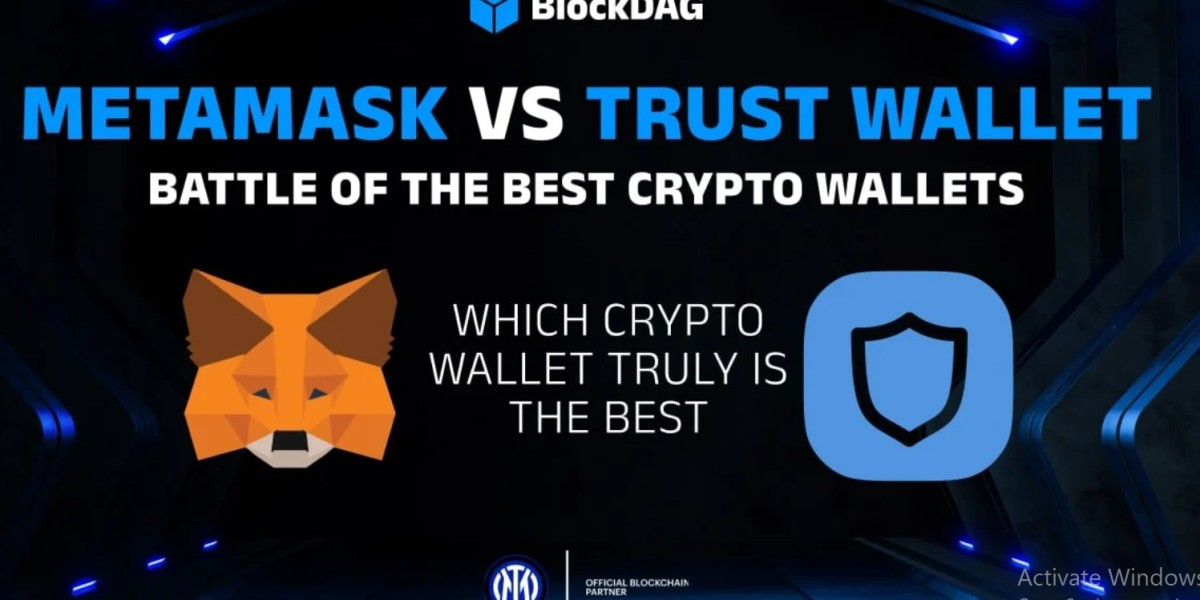In the rapidly evolving world of cryptocurrency, choosing the right wallet to manage your digital assets is crucial. Among the numerous options available, MetaMask and Trust Wallet have emerged as two of the most secure, user-friendly, and widely adopted non-custodial wallets. Millions of crypto enthusiasts around the globe rely on these wallets to store, send, trade, stake, and engage with decentralized applications (dApps). But which one truly reigns supreme? This blog dives deep into the features, strengths, and differences between metamask vs trust wallet to help you decide which crypto wallet suits your needs best.
1. Introduction to MetaMask and Trust Wallet
Both MetaMask and Trust Wallet are non-custodial, meaning users retain full control of their private keys and funds. This level of control is vital in the crypto world for security and independence. Furthermore, both wallets provide seamless access to the growing worlds of staking, DeFi projects, NFTs, and dApps, contributing to their popularity.
Both wallets are free to download and use, though blockchain network fees apply when sending or swapping cryptocurrencies. Despite these similarities, each wallet offers unique features and caters to different user preferences.
2. Blockchain Compatibility: Multi-Chain Flexibility
MetaMask started as an Ethereum-only wallet, designed to interact with Ethereum-based assets and dApps. Over time, it has evolved to support EVM-compatible blockchains like Binance Smart Chain (BSC) and Polygon, but users need to manually configure these networks within the wallet.
In contrast, Trust Wallet supports a wide variety of blockchains out of the box, including Ethereum, Binance, Solana, and many other Layer-1 protocols. This makes Trust Wallet a more convenient choice if you prefer to manage assets across multiple blockchains without the hassle of manual setup.
3. Token Swapping: Convenience at Your Fingertips
Both wallets include built-in token swap features, enabling users to exchange tokens directly within the app without needing to use an external exchange.
MetaMask’s swap function mainly caters to Ethereum-based tokens, which aligns with its Ethereum roots. Meanwhile, Trust Wallet offers broader swap support, including for Binance Smart Chain tokens and others, providing more flexibility if you operate on multiple chains.
4. NFT Handling: Who Wins the Digital Collectibles Game?
NFTs have become a major aspect of the crypto ecosystem. Both MetaMask and Trust Wallet support NFTs, but their experiences differ.
MetaMask primarily focuses on Ethereum-based NFTs and lacks a user-friendly interface for NFTs from other networks. If your NFT collection is predominantly on Ethereum, MetaMask will suffice, but it doesn’t offer a comprehensive NFT gallery experience.
Trust Wallet, on the other hand, provides better support for NFTs from multiple blockchains, offering a more versatile and visually appealing way to store and view your digital collectibles. For NFT enthusiasts who like to diversify, Trust Wallet has the edge.
5. dApp Browsing: Seamless Decentralized Application Access
Interacting with decentralized applications is central to the crypto user experience.
MetaMask excels on desktop thanks to its browser extension, which integrates smoothly with Web3 applications. While it also offers a mobile dApp browser, the desktop experience is superior and preferred by many users.
Trust Wallet also supports dApps via a mobile-integrated browser and offers a desktop extension to mirror MetaMask’s functionality. For users who prefer managing crypto on their smartphones, Trust Wallet delivers a solid dApp interaction experience.
6. Staking Features: Earn Passive Income Effortlessly
Staking crypto to earn rewards is becoming a mainstream feature in wallets.
Trust Wallet stands out by supporting staking for a variety of cryptocurrencies like XTZ (Tezos), BNB, and more, all accessible within the app. This capability allows users to generate passive income without leaving the wallet.
MetaMask also supports staking, but it’s largely focused on Ethereum staking variants such as liquid, combined, and validator staking. If you are primarily invested in Ethereum, MetaMask’s staking features are well suited to your needs.
7. Security: Keeping Your Crypto Safe
Security is paramount, and both wallets are non-custodial, giving users full control over private keys. Additionally, both wallets’ codebases are open-source, allowing for community scrutiny and continuous improvement.
The primary risk for both wallets stems from user error—phishing attacks and careless security practices can compromise any wallet. Following best security practices such as safeguarding your seed phrase and avoiding suspicious links is essential regardless of the wallet choice.
8. User Experience: Ease of Use vs. Customization
MetaMask’s interface is straightforward and intuitive, but the necessity to manually add and configure networks can be intimidating for newcomers. However, many tutorials and guides exist to ease this process.
Trust Wallet offers a more user-friendly, plug-and-play experience for those looking to use multiple blockchains without hassle, making it ideal for beginners or users who value simplicity and convenience in multi-chain management.
9. Transaction Costs: Fees on Both Sides
Both wallets reflect network fees, which fluctuate depending on blockchain congestion. When swapping tokens inside the wallets, both apply nominal fees. There is no significant difference between the two regarding costs, so fees should not be a decisive factor.
10. So, Which Wallet Is Best for You?
Choose MetaMask if you primarily use Ethereum and want a powerful browser extension for desktop use, especially for interacting with Web3 apps and Ethereum DeFi projects. MetaMask’s integration with Ethereum’s ecosystem is seamless and robust.
Choose Trust Wallet if you want a simple mobile wallet that supports multiple blockchains, offers easy NFT management across networks, and includes staking features. It’s ideal for users who prefer managing their crypto portfolio on the go with minimal setup.
11. The Wallet Wars Are Just the Beginning — Enter BlockDAG
While MetaMask and Trust Wallet are excellent tools for managing crypto assets, the blockchain space continues to evolve rapidly. One promising innovation is BlockDAG, a hybrid model combining blockchain and DAG (Directed Acyclic Graph) structures, gaining significant investor attention.
Currently in its 27th batch of presale, BlockDAG is priced at $0.0248 per token, with over 19.3 billion tokens sold — a testament to its growing community trust. Beyond trading, BlockDAG offers practical mining opportunities with devices like the X10 miner and the powerful X100 ASIC miner, supporting the emergence of a strong mining community.
BlockDAG’s global community-building efforts, such as its Ambassador Program and strategic partnerships, further highlight its potential as a future major player in the crypto space.
12. Conclusion
MetaMask and Trust Wallet each shine in different areas, catering to varied crypto user preferences. MetaMask is a powerhouse for Ethereum users and desktop Web3 app enthusiasts, while Trust Wallet is a versatile mobile-friendly option for multi-chain users, NFT collectors, and staking fans.
As the crypto ecosystem expands with innovations like BlockDAG, users can look forward to more advanced tools and technologies. For now, your choice between MetaMask and Trust Wallet should be guided by your specific needs, blockchain preferences, and how you interact with the decentralized world.
Whichever wallet you pick, always prioritize security and stay informed about the latest developments in crypto technology.





